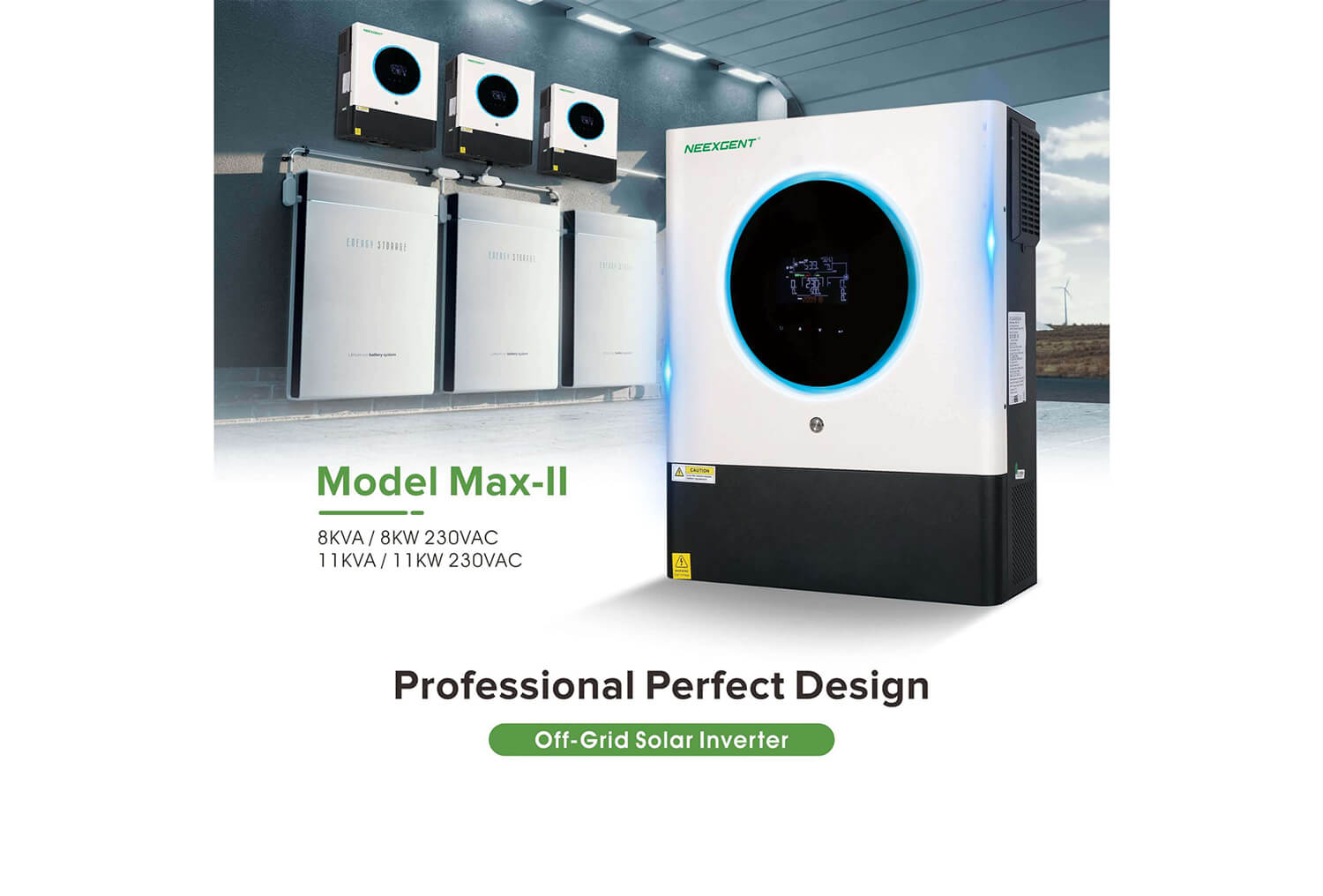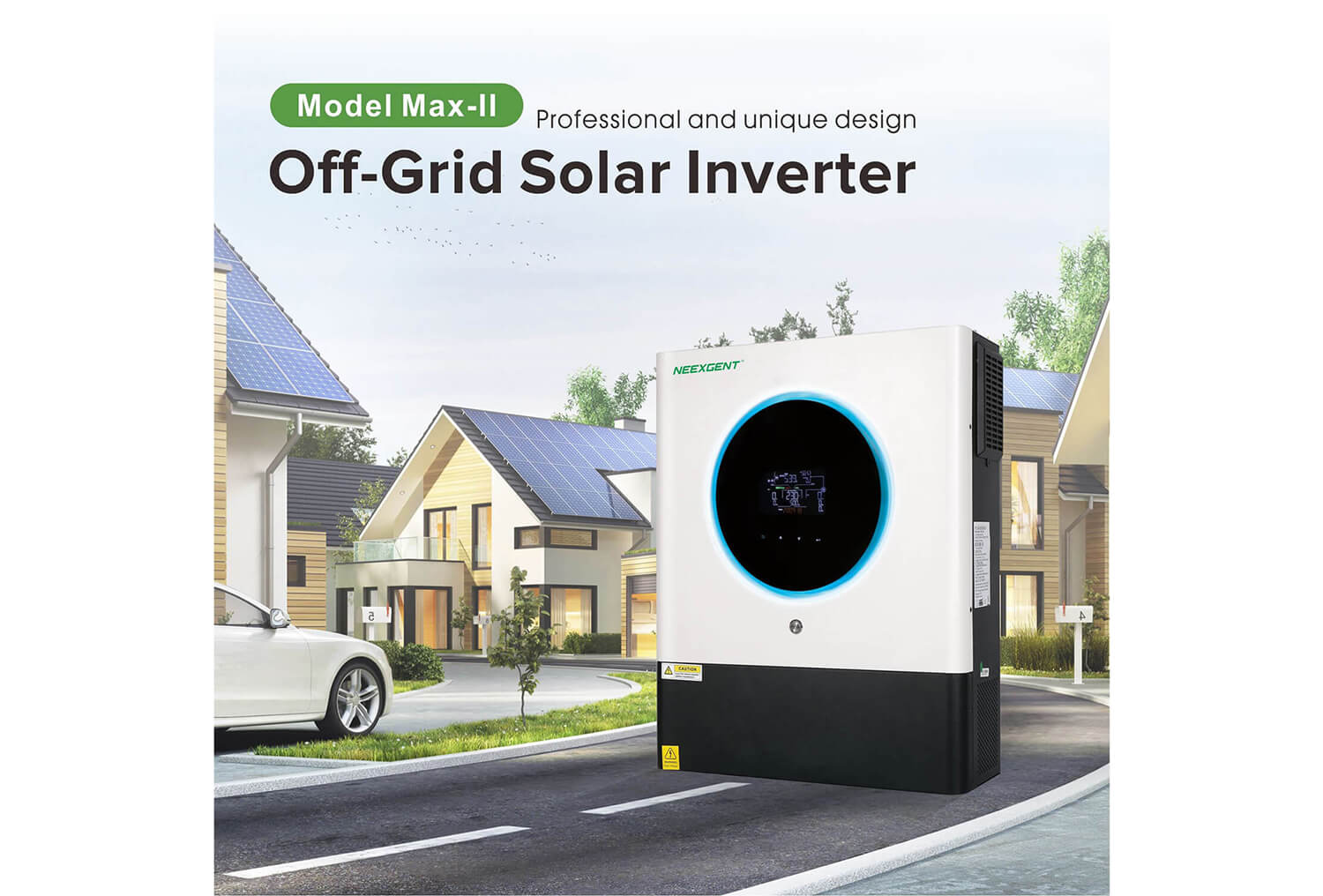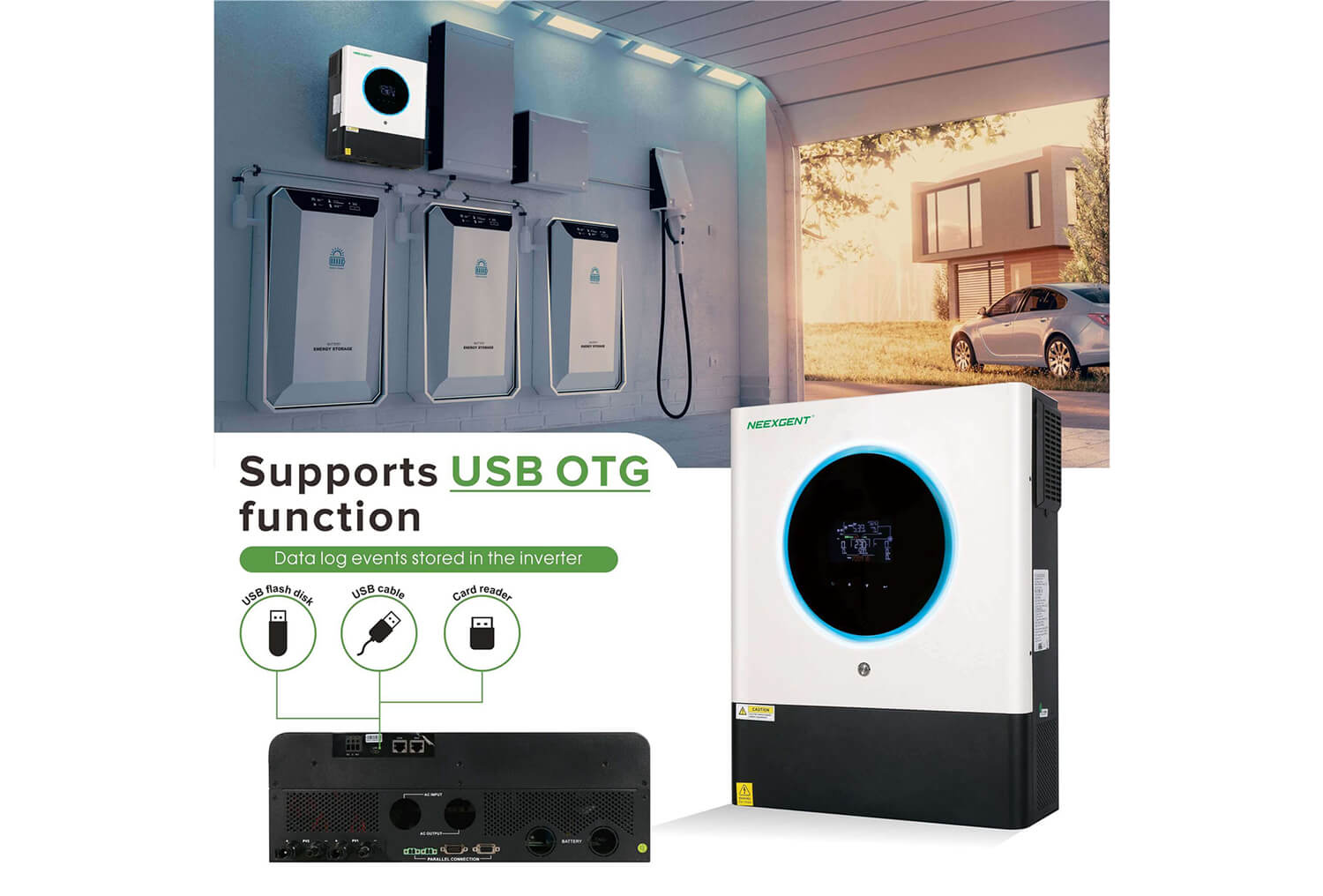
Max II Off Grid Solar inverter
1. Maximizing Solar Power Output: The Role of Solar Inverters in Power Generation
Solar inverters play a critical role in maximizing solar power output in power generation systems. By converting DC electricity from solar panels into AC electricity that can be used to power homes and businesses, solar inverters ensure efficient energy conversion and enable the integration of solar power into the grid. With advancements in technology, modern solar inverters are equipped with smart grid integration capabilities, allowing for advanced monitoring, remote control, and grid-tie functionality, which optimize power generation and enhance the performance of renewable energy systems. Investing in high-quality solar inverters is essential for maximizing solar power output and unlocking the full potential of solar energy as a clean, renewable, and sustainable source of power.
If you are considering installing a solar power system, it's important to choose high-quality solar inverters to maximize the power output of your solar panels. Look for solar inverters with advanced features such as smart grid integration, remote monitoring, and grid-tie functionality to optimize the performance of your renewable energy system. Consult with a reputable solar installer to determine the best solar inverter options for your specific needs and requirements. By investing in high-quality solar inverters, you can ensure efficient energy conversion and unlock the full potential of solar power generation, contributing to a greener and more sustainable future.

2. Efficient Energy Conversion: The Importance of Solar Inverters in Solar Power Systems
Solar inverters are a critical component of solar power systems, serving as the bridge between the DC electricity generated by solar panels and the AC electricity that is used to power homes, businesses, and the grid. They play a crucial role in ensuring efficient energy conversion, optimizing the performance and effectiveness of solar power systems. High-quality solar inverters are essential in maximizing solar power output, as they are responsible for tracking the maximum power point (MPPT) of solar panels, ensuring that they operate at their peak efficiency. Additionally, solar inverters enable grid-tie functionality, allowing excess solar power to be fed back into the grid or stored in batteries for later use. This makes solar inverters a key element in the overall performance and reliability of solar power systems.
The importance of solar inverters in solar power systems is further highlighted by their advanced features and functionalities. Modern solar inverters often come equipped with smart grid integration, allowing them to communicate with the utility grid and respond to grid conditions. This enables seamless integration of solar power into the grid, reducing reliance on fossil fuel-based power and contributing to a greener and more sustainable energy mix. Solar inverters also offer remote monitoring capabilities, allowing system owners to monitor the performance of their solar power system in real-time, detect any issues or inefficiencies, and take corrective measures. These advanced features not only optimize the energy conversion process but also enhance the overall performance and reliability of solar power systems.
Another key aspect of the importance of solar inverters in solar power systems is their role in ensuring safety and protection. Solar inverters come equipped with various safety features, such as over-voltage protection, over-current protection, and ground fault protection, which safeguard the system and prevent damage or hazards. In addition, solar inverters provide important data on the performance and health of solar panels, allowing system owners to detect any issues or anomalies that may affect the overall efficiency and longevity of the system. By monitoring and protecting the solar power system, solar inverters play a critical role in ensuring the safe and reliable operation of solar power systems.

3. Smart Grid Integration: How Solar Inverters Enhance Power Generation in Renewable Energy Systems
Solar inverters play a pivotal role in enhancing power generation in renewable energy systems. As the primary link between solar panels and the power grid, solar inverters are responsible for converting the direct current (DC) electricity generated by solar panels into the alternating current (AC) electricity that is used to power homes, businesses, and the grid. By utilizing advanced features such as maximum power point tracking (MPPT), grid-tie functionality, and smart grid integration, solar inverters optimize the performance of renewable energy systems. They ensure that solar panels operate at their peak efficiency, maximize energy production, and seamlessly integrate with the grid, contributing to increased power generation and a more reliable and efficient renewable energy system.
The efficiency of solar inverters is crucial in enhancing power generation in renewable energy systems. High-quality solar inverters are designed to minimize energy losses during the conversion process, maximizing the amount of electricity that is fed into the grid or used onsite. Advanced MPPT technology allows solar inverters to continuously track the optimal operating point of the solar panels, adjusting the voltage and current to ensure maximum power output. This efficient energy conversion process ensures that more of the solar energy is converted into usable electricity, leading to increased power generation and improved overall system performance.
Solar inverters also enhance power generation in renewable energy systems through their role in system monitoring and maintenance. Many solar inverters come equipped with remote monitoring capabilities, allowing system owners to track the performance of their renewable energy system in real-time. This enables early detection of any issues or inefficiencies, such as shading, panel degradation, or equipment malfunctions, allowing for timely corrective measures. By ensuring that the system operates optimally and identifying and addressing any potential issues, solar inverters contribute to increased power generation and improved system reliability. Proper maintenance and monitoring of the system, facilitated by solar inverters, help to maximize the lifespan of the system and ensure sustained power generation over the long term.








